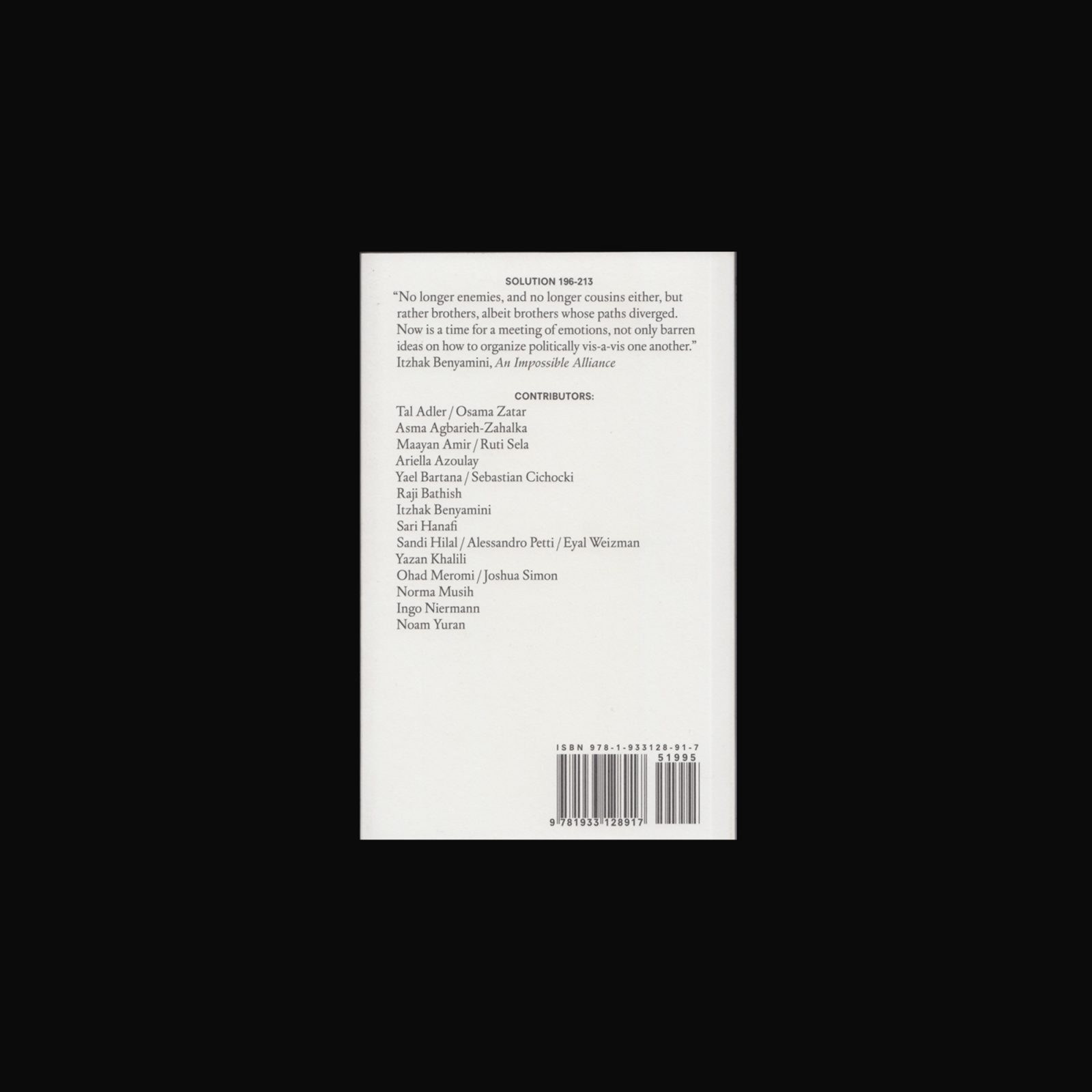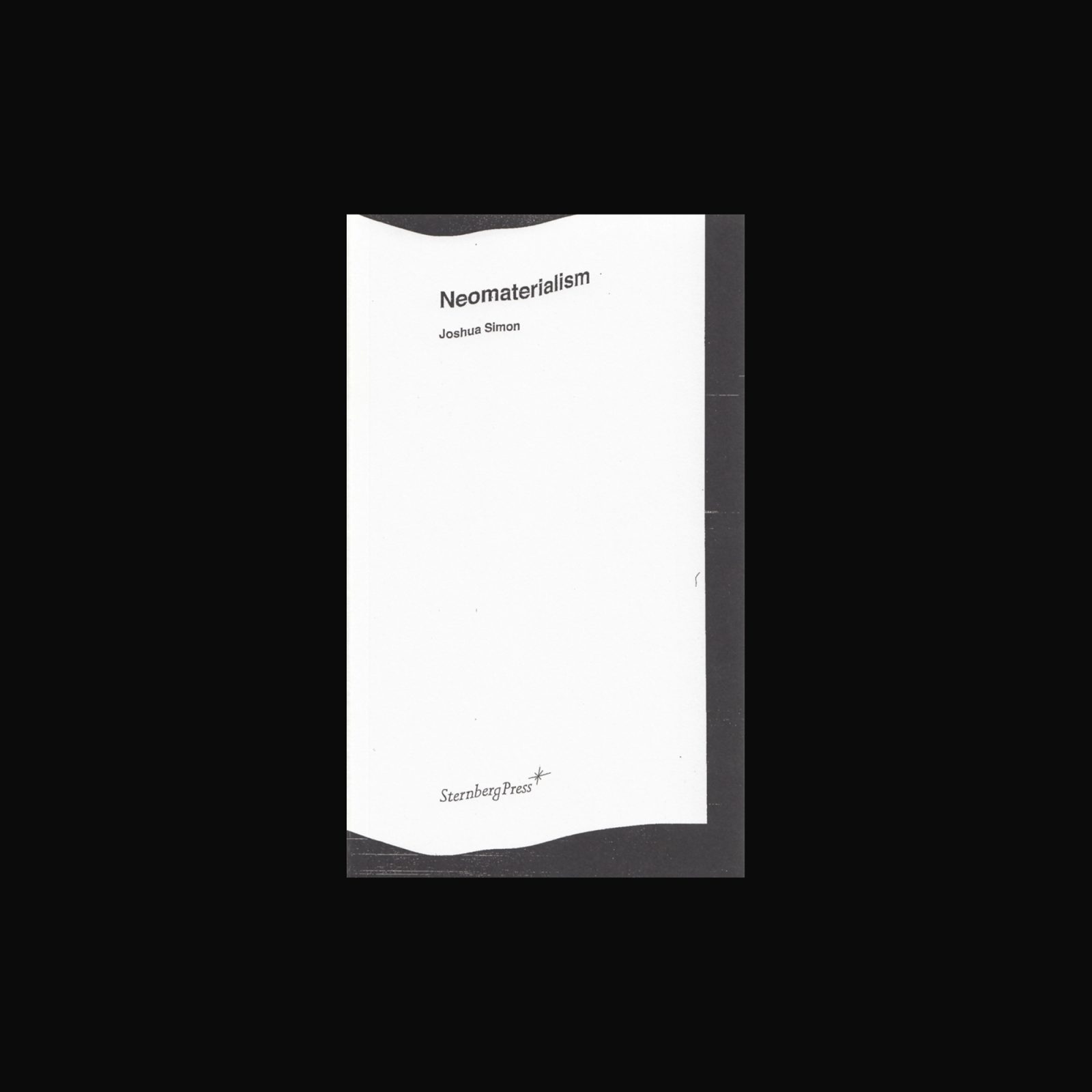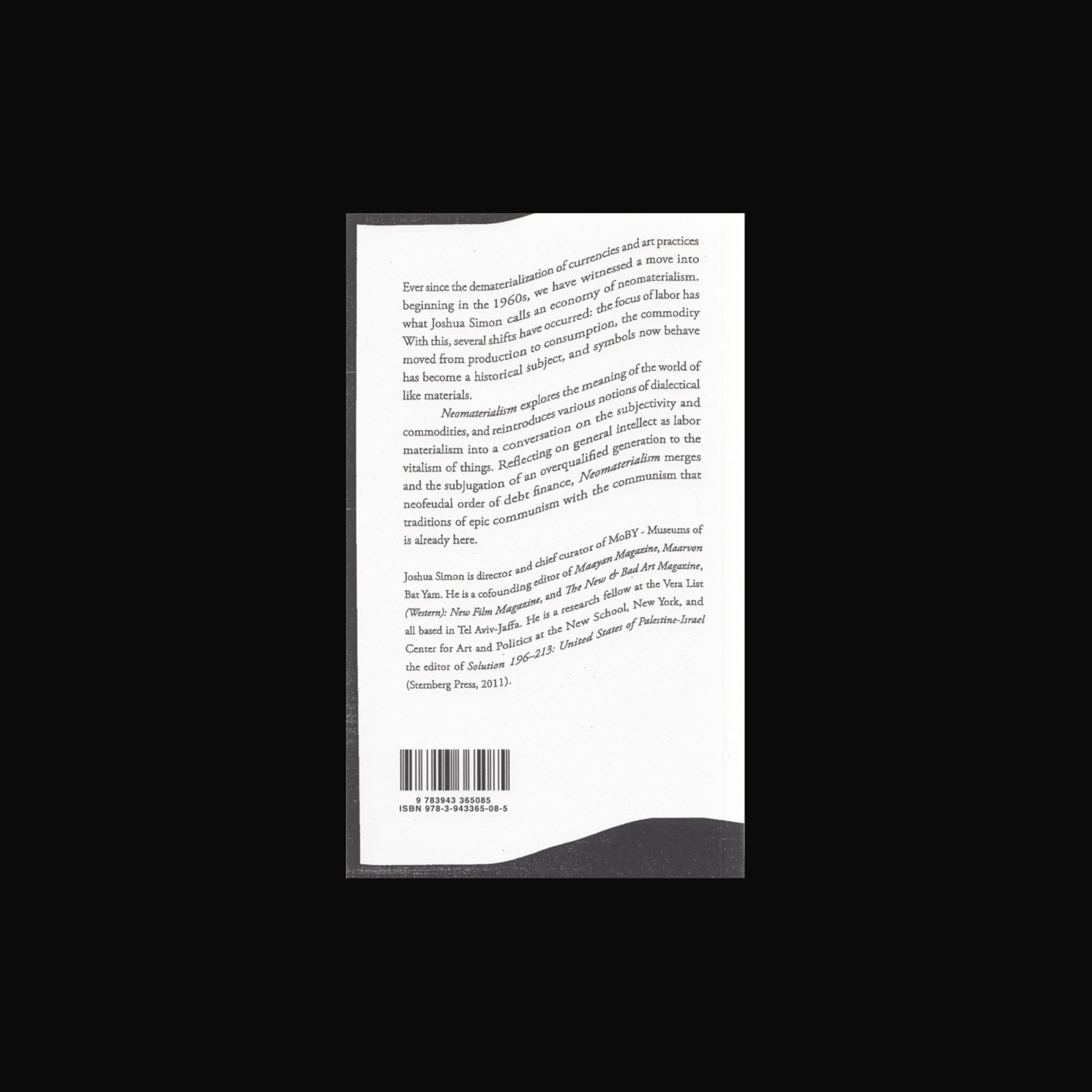With contributions by Tal Adler/Osama Zatar, Asma Agbarieh-Zahalka, Maayan Amir/Ruti Sela, Ariella Azoulay, Yael Bartana/Sebastian Cichocki, Raji Bathish, Itzhak Benyamini, Sari Hanafi, Sandi Hilal/Alessandro Petti/Eyal Weizman, Yazan Khalili, Ohad Meromi/Joshua Simon, Norma Musih, Ingo Niermann, Noam Yuran
Solution 196–213: United States of Palestine-Israel is an anthology of texts proposing a doable solution for the region. With contributors based in Ramallah and Tel Aviv-Jaffa, Beirut and Jerusalem, New York and Bethlehem, Nazareth and Warsaw, the book offers solutions that will make life better, and proposes ways to do it.
Unlike previous books in the Solution series, this book invited several writers from the region to suggest specific and doable solutions for today. This is mainly since it seems absurd to present a one-man master plan for Palestine-Israel. In many senses, such master plans (whether they take a colonial, Zionist or other meta-narrative lead) have been the mold of the problem in the region for at least the last 150 years.
The idea is therefore to rethink the different antagonisms that structure our ways of resistance and compliance: to rethink Semitism and 1948, rethink identity and territory, rethink resistance and memory, rethink democracy and state, rethink Zionism and decolonization, rethink refugee and property, rethink religion and solution.
Solution Series edited by Ingo Niermann. Designed by ZAK Group.





